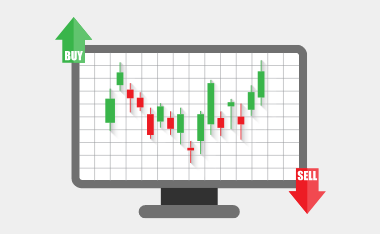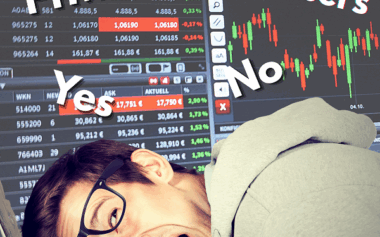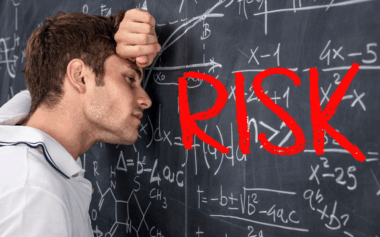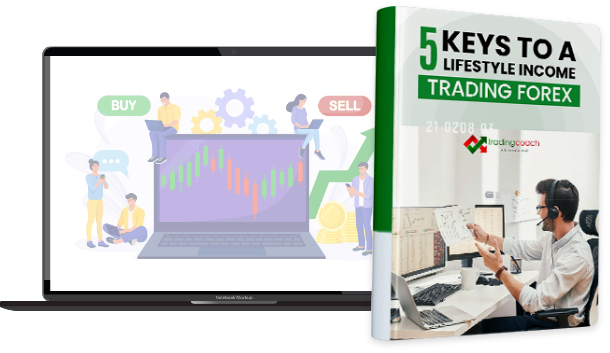How to Avoid Trading Scams!

As the world of forex trading grows, so does the prevalence of forex trading scams.
These scams can be incredibly convincing, luring in unsuspecting victims with the promise of guaranteed returns and easy profits.
Unfortunately, many new traders fall victim to these scams, losing their hard-earned money in the process.
The good news is that with some knowledge and awareness, it is possible to spot and avoid these scams before it’s too late.
Whether you’re a new trader just starting out, or a seasoned pro looking to refine your skills, the information in this article will be invaluable in keeping you safe from fraud.
So, if you’re ready to learn the top warning signs of a forex trading scam, and how to protect yourself from falling victim to one, keep reading.
Don’t let these scams ruin your trading experience, let’s help you become a savvy trader and avoid the pitfalls of the forex market.
Types of Forex Trading Scams
There are many different types of forex trading scams, but they all have one thing in common: the promise of easy money.
This should be the first warning sign.
It is a truism in trading that there is no such thing as quick money and definitely no overnight successes.
The only way to achieve financial independence is by being educated, having a strong trading method, using proven profit generating strategies and by Doing The Work…
Here are a few of the most common forex trading scams to watch out for:
Signal Sellers
Some scammers pretend to be expert traders who provide trading signals that guarantee profits.
They will ask for a fee to access these signals, but in reality, the signals are random and the scammer will disappear with the fee.
These signals are supposed to be based on in-depth market analysis, possibly using Artificial Intelligence, or sophisticated algorithms… but in reality, they are often nothing more than random guesses, wrapped up in a pretty package.
Some signal sellers even use fake reviews and testimonials to lure in unsuspecting traders.
The thing is that the reviews just won’t stand up to any scrutiny.
The reviews will be written in poor English, be very basic, without verifiable details of the “trader’s” journey and results.
The reviews may be on Facebook, YouTube videos, but won’t appear on highly regarded review sites, like Trust Pilot.
Also, think about it… if you want to be TRULY INDEPENDENT, why would you rely on someone else to give you signals… What if they disappear tomorrow… how will you know where and when to trade?
Robot Scams
Robot scams involve the use of automated trading systems that supposedly help traders make profitable trades without any effort on their part.
Their “systems” claim to use advanced automated algorithms to trade the forex market profitably.
These systems often promise large returns with minimal effort, but in reality, they are unlikely to work as advertised.
In reality, algorithms don’t have a high success rate – there are just too many factors to consider when analysing the market to find high probability trade entries…
That’s why financial institutions rely on human traders to actually place their trades and algorithms just to sort through some of the data…
Most robots earn their promoters the lion’s share of the money, generating an introducing broker commission for the robot promoter for every trade taken using the robot.
I’ve seen some robots that place trades every 30 seconds for hours on end, until the trader’s bank accounts are drained – paying a commission to the promoter of 1% to 2% of the amount invested in each trade. Imagine the robot does 120 trades an hour on 300 traders, each trading $10,000…..
Some robots may even be designed to intentionally lose money, with the scammer taking a commission on each losing trade.
Ponzi Schemes
Ponzi schemes promise high returns on investments, but in reality, they are simply a way for scammers to steal money from investors.
In a Ponzi scheme, investors are promised high returns on their investment, but the money is not invested in anything legitimate.
Instead, it’s a complex pyramid scheme that uses new investors’ money is used to pay off earlier investors.
The early investors introduce more and more new investors, showing them that they have made money back…
Once there are enough people in the pyramid, the organisers stop paying out commissions and keep the money coming in for themselves.
Eventually, the scheme collapses, when the scammer can no longer attract enough new investors to pay the returns promised to earlier investors.
This leaves everyone (but the scammers, of course) with nothing.
Forex MLM Schemes
When it comes to investing in forex, it is crucial to be careful about forex MLM scams.
Forex MLM scams are fraudulent schemes that use the forex market as a guise to lure unsuspecting investors into investing in fake opportunities that promise quick, easy profits.
These scams can take on many forms, such as pyramid schemes, Ponzi schemes, or fake trading platforms.
One way to avoid forex MLM scams is to do your research before investing in any opportunity. Check the credentials of the company or individual offering the investment opportunity.
Make sure they are licensed and registered with relevant regulatory authorities. Additionally, be wary of promises of quick profits or high returns on your investment.
Forex trading is a high-risk investment, and anyone promising guaranteed returns is likely running a scam.
Another red flag to watch out for is the requirement to recruit new investors into the scheme.
MLM forex scams often require members to recruit new investors to join the scheme, which can quickly turn it into a pyramid scheme.
Legitimate forex trading opportunities should not require you to recruit new members to join the scheme.
If you come across an opportunity that requires you to recruit new investors, be cautious and do your research before investing any money. Remember, if it sounds too good to be true, it probably is.
Forex Trading Phishing Scams
Forex trading phishing scams are another type of online fraud that investors need to be aware of.
These scams typically involve receiving an email or message that appears to be from a legitimate forex trading company or broker.
The message may ask for personal information, such as login credentials or credit card details, or it may contain a link to a fake website designed to look like the legitimate company’s website.
Once the victim enters their information, the scammers can use it to steal money or identity.
To avoid falling victim to forex trading phishing scams, investors should be cautious about providing personal information and always verify the legitimacy of a message or website before entering any sensitive information.
One way to verify the legitimacy of a message or website is to check for security features, such as a lock icon in the address bar or an “https” at the beginning of the URL.
Legitimate forex trading companies will also typically have a physical address and phone number listed on their website, which investors can use to verify their legitimacy.
Additionally, investors should be wary of any messages or websites that promise unusually high returns or use high-pressure tactics to encourage investment.
In conclusion, forex trading phishing scams can be a serious threat to investors.
By being cautious about providing personal information and verifying the legitimacy of messages and websites, investors can protect themselves from becoming victims of these scams.
It’s important to remember that legitimate forex trading companies will never ask for sensitive information in an unsolicited message or use high-pressure tactics to encourage investment.
Forex Trading “Buddy” Scams
Forex trading buddy scams can be tricky to spot as they typically involve someone pretending to be an experienced trader offering to mentor you for a fee.
They may offer to trade on your behalf or give you insider tips, but ultimately they are just looking to take your money.
It’s important to be cautious when approached by someone offering to be your forex trading buddy and to do your due diligence before entering into any financial arrangement.
If the buddy is based in another country, especially one that had no legal recourse should you lose your money, BEWARE!
If they want you to deposit funds into an account on their website, verify they are a registered broker. If they want you to open up an account with a legitimate broker and share your login details, BEWARE!
One way to avoid falling victim to forex trading buddy scams is to be wary of unsolicited offers of help.
If someone contacts you out of the blue offering to mentor you or trade on your behalf, it’s likely best to decline their offer.
Do your own research and seek out reputable sources of trading education and advice.
Check out their website – does it look professional? (are there any obvious spelling or grammatical errors – copy and paste the text from the page into Microsoft Word and use the spell checker, if you don’t trust your own English skills) Does the website have government Registration details that you can verify independently?
In addition, it’s important to remember that no one can guarantee profits in forex trading, and any claims of high returns with little risk should be viewed with scepticism.
Always use caution and common sense when considering any investment opportunity, and don’t let the promise of easy profits cloud your judgment.
Ultimately, it’s up to you to take responsibility for your own trading decisions and to be diligent in protecting yourself from scams and frauds.
How to Spot a Forex Trading Scam
So, how can you tell the difference between a legitimate forex trading opportunity and a scam?
Here are a few warning signs to look out for:
Unbelievable Promises of Unrealistic Quick Profits
If a trading opportunity promises “guaranteed profits”, run!!!
Remember, forex trading is inherently higher risk, and there is no sure-fire way to guarantee profits.
Legitimate opportunities will detail the step by step education, skill building and profit generating framework that produces a realistic return on investment.
They will present the risks associated with the program, the work that the trader will need to do to build their results and examples of traders who have produced the results.
It is difficult to build the equivalent of a full time trading income without at least 12 to 18 months invested in skill development, and gradual compounding of profits.
Anything less is most likely fanciful and should be viewed with healthy scepticism.
Lack of Regulation
Forex brokers and signal sellers should be regulated by a reputable authority, such as ASIC (the Australian Security & Investments Commission) and promoters, investment advisors should have an AFS Licence.
Coaches, Educators and Mentors do not generally require an AFS Licence in Australia, especially if their program is focused on educating, coaching and empowering individuals to take personal responsibility and generate their own trading results.
A general rule of thumb is, if someone takes your money to invest for you, they should be registered financial advisors. Signal Sellers that have an affiliation with a broker, should also be registered.
If you can’t find any information about a company’s regulatory status, it’s best to steer clear.
Forex brokers are required to be licensed and regulated in the countries where they operate.
Be wary of brokers who operate in countries with lax regulations or who are not regulated at all, and where there are no reciprocal legal agreements to prosecute from your country.
High-Pressure Sales Tactics
Scammers often use high-pressure sales tactics to convince traders to invest in their scheme immediately.
They may try to create a sense of urgency by telling you that the opportunity is only available for a limited time or they will offer you a large incentive to sign up now.
If you feel like you’re being rushed into a decision, take a step back and do some research before investing.
Choosing a path to follow build your financial future for yourself and your family should be given due consideration and you should never rush to make a decision.
Take the time to do your due diligence and proceed in YOUR TIME.
Lack of Transparency
Legitimate forex brokers and trading programs should be transparent about their trading strategies, fees, and performance.
If a broker or program is reluctant to provide this information or makes vague or misleading claims, it may be a red flag.
The program should offer good value for money and look for programs that provide the individual support and attention that you need.
If you have concerns, keep looking. If they are legitimate, they’ll accept this and wait for you.
Poor Customer Service
Legitimate forex brokers and trading education programs should have good customer service and support.
If you have trouble reaching someone for help or if the support staff is unresponsive or unhelpful, it may be a sign that the company is not legitimate.
Look for brokers who are licensed and regulated by reputable authorities, such as ASIC in Australia.
Check their reviews and reputation online, with recognised review sites, like Trust Pilot and be wary of any broker that has a high number of negative reviews or complaints.
In addition, always trust your gut instincts.
If something seems too good to be true, it probably is.
Never invest more money than you can afford to lose, and always use a tested trading method and sound risk management principles.
The Importance of Education and Trading for Yourself
One of the best ways to protect yourself from forex trading scams is to educate yourself about the market and develop your own trading strategies.
By relying on your own analysis and decision-making, you can avoid falling victim to signal sellers and other scammers.
There are many resources available online and through forex brokers to help you learn about the market and develop your trading skills.
Many brokers offer demo accounts that allow you to practice trading without risking any real money.
This can be a great way to get a feel for the market and develop your trading strategies before investing your own money.
Where to Get Help in Australia
If you believe that you have been scammed, it is important to take action as soon as possible.
Contact your local state Consumer Department and report the incident.
If you believe that you have been the victim of a forex trading scam, there are several resources available to help you.
The Australian Securities and Investments Commission (ASIC) is the regulatory body responsible for overseeing forex brokers in Australia.
You can search the ASIC register on this link https://asic.gov.au/online-services/search-asic-s-registers/
If you have concerns about a broker or signal seller, you can contact ASIC to file a complaint.
In Australia, you can also report scams to the Australian Competition and Consumer Commission (ACCC) through their Scamwatch website https://scamwatch.gov.au
Scamwatch is a government website, dedicated to helping consumers avoid scams. If you have been the victim of a scam, you can report it to Scamwatch and get advice on how to recover your money..
While there may be little chance of recovering your lost funds, reporting the incident can help prevent others from falling victim to the same scam.
In Conclusion
Forex trading can be a lucrative opportunity, but it’s important to be aware of the risks and take steps to protect yourself.
While there are certainly forex trading scams out there, it is important to not let fear paralyze you from pursuing legitimate opportunities to build wealth through trading.
Scammers use a variety of tactics to deceive and take advantage of unsuspecting individuals, but by staying educated, doing your due diligence, and trusting your instincts, you can avoid becoming a victim.
By educating yourself, carefully evaluating potential trading opportunities, and seeking out reputable brokers and coaches, you can increase your chances of success in the forex market.
Ultimately, the responsibility for your trading success lies with you.
Take the time to develop a solid trading plan, stick to it, and seek out trusted resources for guidance and support.
Take control of your own trading decisions and never blindly follow the advice of others.
By doing so, you can avoid falling victim to forex trading scams and instead work towards achieving your financial goals in a sustainable and responsible way.
With the right knowledge and approach, you can navigate the world of forex trading with confidence and avoid falling victim to scams.
Remember, trading is not a get-rich-quick scheme, but a long-term investment in your financial future.
More Information
For more trading term general definitions, visit our A to Z of Forex Trading
To look at these concepts in action, please visit our sister site, Latest Forex Rates
What to do Next
If you have more questions or need further guidance, don’t hesitate to reach out to us at The Trading Coach International for personalized coaching and support.
If you would like to learn more about trading forex profitably and what steps you can take next to get on the right track to build your Lifestyle Income From Trading, you can book an no obligation, Free Strategy Call with our Lead Trading Coach by clicking on THIS LINK
Disclaimer
The information, strategies, techniques and approaches discussed in this article are for general information purposes only. The Trading Coach International does not necessarily use, promote nor recommend any strategies discussed in this article. The information in this article may not be suitable for your personal financial circumstances and you should seek independent qualified financial advice before implementing any financial strategy. The Trading Coach International is not a financial advisor and does not have AFS registration.


















